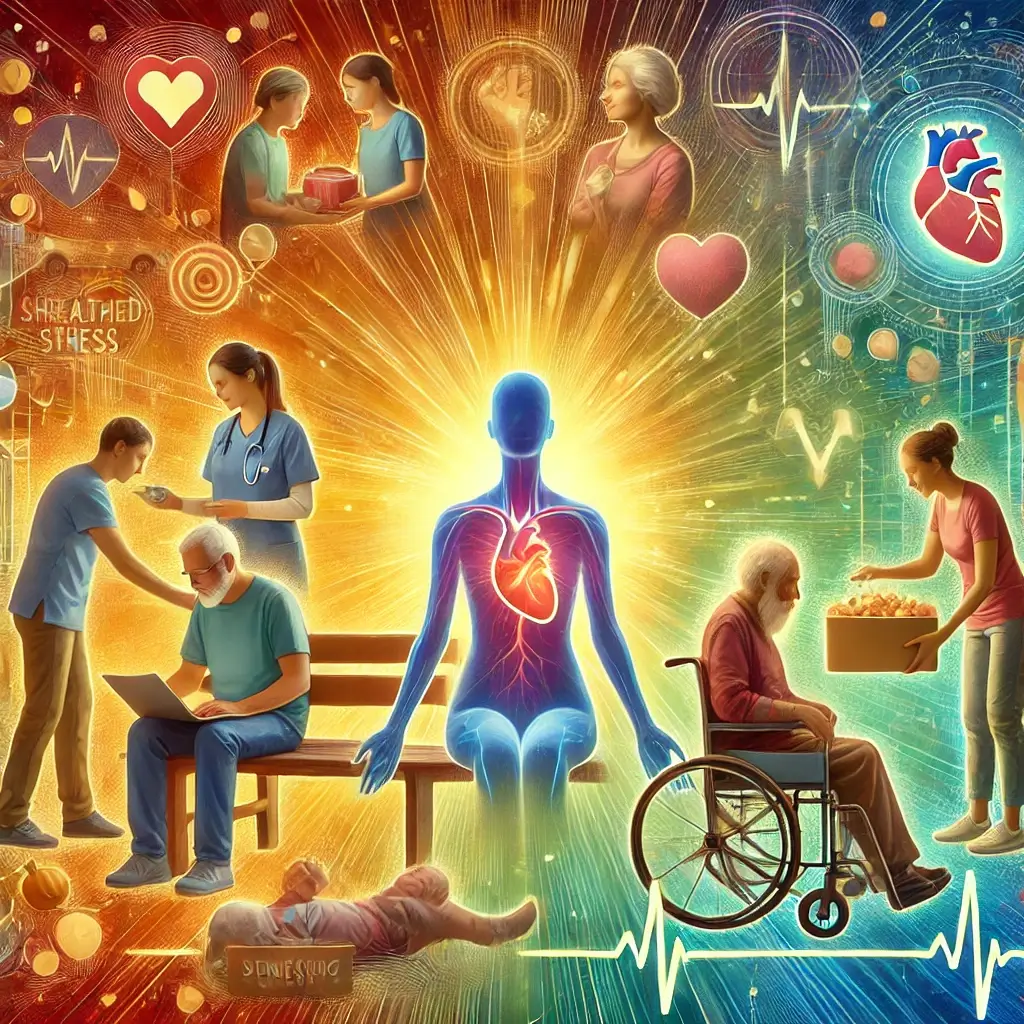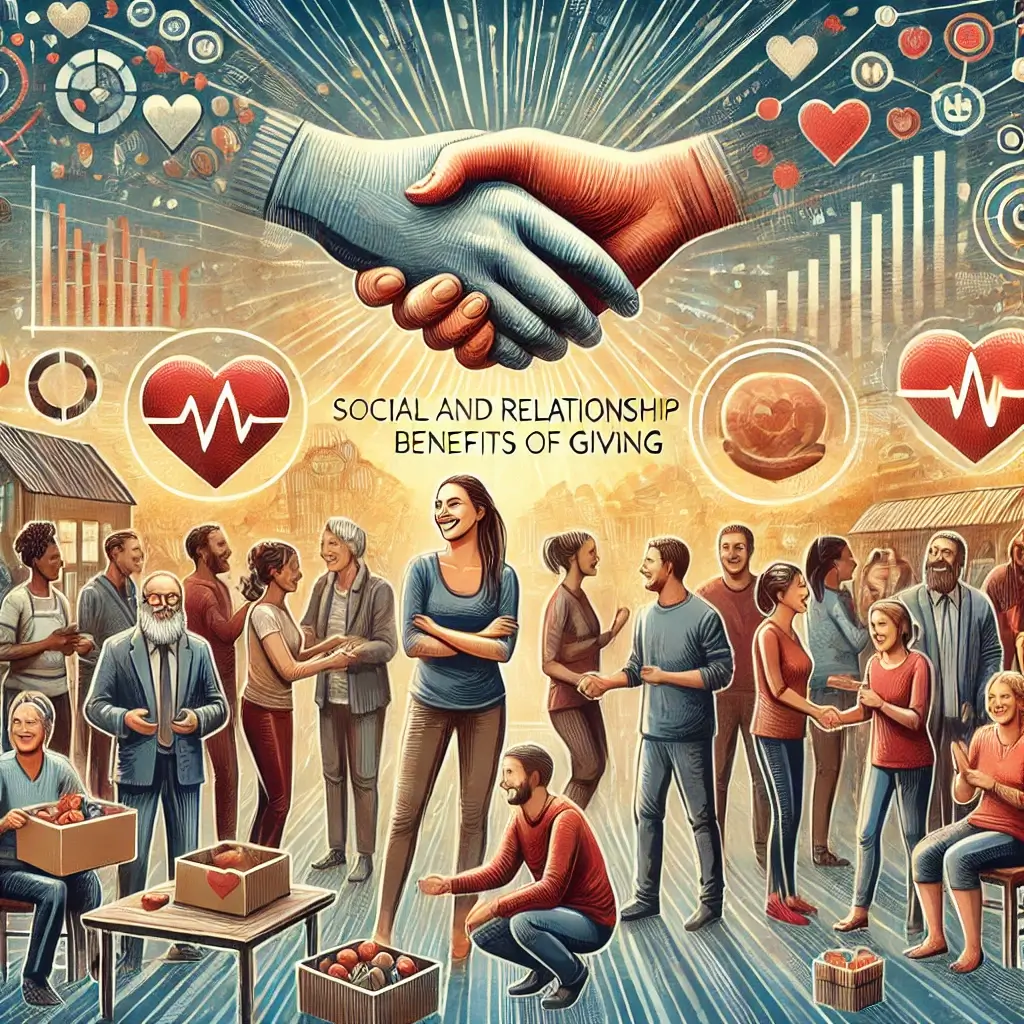Generosity is typically regarded as a selfless act; however, scientific research shows that giving benefits the giver just as much as the recipient.
Whether through charitable donations, volunteering, or simple acts of kindness, generosity offers significant psychological, emotional, and even physical advantages.

This article examines the science behind generosity and how adopting a giving mindset can improve your overall well-being.
Be Kind or Generous to Yourself
To truly extend generosity to others, it’s essential to also practice generosity toward yourself. Self-care and self-compassion are crucial for overall well-being. When you treat yourself with kindness, you build a positive mental and emotional foundation, enabling you to give more effectively to others.
Self-generosity can take many forms, including:
- Practising self-compassion – Acknowledge your efforts and forgive yourself for mistakes rather than being overly self-critical.
- Prioritizing mental and physical health – Taking time to rest, exercise, and eat well is an act of generosity toward your future self.
- Allowing yourself time for joy – Engaging in hobbies, relaxation, and moments of celebration can replenish your emotional reserves.
By being kind to yourself, you create a strong sense of self-worth and inner balance, which enables you to be more present and giving toward others.
The Psychological Benefits of Giving

Giving triggers a powerful psychological response often referred to as the “helper’s high.” When you engage in acts of generosity, your brain releases chemicals such as dopamine, serotonin, and oxytocin.
Dopamine is a neurotransmitter that plays a role in pleasure, motivation, and reward. Serotonin helps regulate mood, sleep, and emotional well-being, while oxytocin promotes social bonding, trust, and emotional connection. Together, these neurotransmitters enhance feelings of happiness, reduce stress, and strengthen relationships.
Furthermore, studies have shown that generous individuals experience lower levels of stress and anxiety. Giving can decrease cortisol, the hormone responsible for stress, and foster a sense of purpose and satisfaction. This is particularly important in today’s fast-paced world, where stress and burnout are commonplace.
Engaging in acts of kindness and generosity helps counteract these negative effects, leading to a more balanced and fulfilling life. At SPF, we strongly believe in the three (3) pillars of giving and practise them at any giving time.
The Physical Health Benefits of Generosity

Surprisingly, generosity is also linked to better physical health. Research suggests that people who regularly engage in giving behaviours tend to have:
- Lower blood pressure – Engaging in acts of kindness can help regulate blood pressure, reducing the risk of heart-related issues.
- A stronger immune system – Being generous and socially connected strengthens the body’s defence system, making it more resistant to illnesses.
- Longer lifespan – Giving to others is associated with a longer life, likely due to reduced stress and a more positive emotional state.
- Reduced chronic pain – Acts of kindness can trigger the brain’s reward system, which helps lower pain levels and improve overall well-being.
Research has shown that generosity can help reduce chronic pain. When individuals engage in selfless behaviours, their levels of pain decrease due to the activation of the brain’s reward system. This suggests that giving not only benefits others but also provides tangible physical advantages for the giver.
Social and Relationship Benefits of Giving

Generosity helps to build stronger social connections and relationships. When people perform acts of kindness, they foster a sense of trust and cooperation within their communities.
This strengthens interpersonal bonds, leading to deeper friendships, improved teamwork, and more solid family relationships. Additionally, generous individuals are often seen as more likeable and compassionate, which enhances their social networks and emotional support systems.
The act of giving not only reinforces existing relationships but also creates opportunities for new connections. This can be particularly advantageous in professional environments, where networking and collaboration are crucial for career advancement.
Financial and Career Benefits of Generosity
Contrary to common belief, giving can also lead to financial and career advantages. Many successful entrepreneurs and business leaders attribute their success to a giving mindset. Here’s how generosity plays a role in career growth and financial well-being:
- Reciprocity effect: When you give, others are more likely to return the favor, whether through career opportunities, mentorship, or business collaborations
- Enhanced leadership skills: Leaders who practice generosity often inspire loyalty and motivation among their teams, leading to a more productive work environment.
- Increased financial satisfaction: Studies have shown that people who spend money on others rather than solely on themselves report higher levels of financial satisfaction and happiness.
Some global philanthropic leaders like Warren Buffett, and Bill Gates and some of our local philanthropists like Tony Elumelu, and the Dangote Foundation have demonstrated that generosity and financial success are not mutually exclusive. By contributing to charitable causes and investing in social good, they have built lasting legacies while inspiring others to do the same.
How to Incorporate Generosity into Your Life
Generous giving doesn’t always have to be monetary. You can find out more about this in our Part 1 and Part 2 series. There are many ways to practice generosity in daily life, such as:
- Volunteering your time – Help out at a local charity, mentor someone, or offer assistance to those in need.
- Expressing gratitude – A simple “thank you” or heartfelt compliment can go a long way in spreading kindness.
- Donating resources – Whether it’s clothes, books, or food, donating unused items benefits others and clears your space.
- Offering emotional support – Being there for a friend or loved one in difficult times is one of the most valuable forms of generosity.
- Practising small acts of kindness – Holding the door open for someone, buying a coffee for a colleague, or leaving a kind note can brighten someone’s day.
- Engaging in community projects – Supporting local initiatives, participating in fundraising events, or helping to clean up the environment are great ways to give back.
- Teaching and sharing knowledge – Offering free educational resources, tutoring, or skill-sharing can help others grow and improve their opportunities.
Conclusion
The science of generosity is clear: giving benefits not only the recipient but also the giver in profound ways. It can lead to improved mental and physical health, stronger relationships, and even enhanced career growth as mentioned in this article.
Generosity is a powerful tool for personal well-being. By incorporating acts of kindness into our daily lives, we can create a ripple effect that fosters a more compassionate, connected, and fulfilling world.
So, the next time you have the opportunity to give, remember that you’re not just helping someone else; you’re enriching your own life as well.
To lend a helping hand, you can make donations towards our upcoming events for the year.
The Supportive Pillar Foundation in Nigeria combats hunger and empowers the underprivileged.



